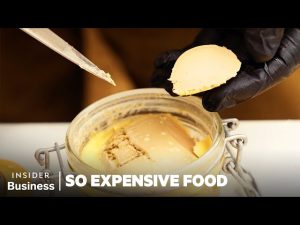Why ‘Ethical’ Foie Gras Is So Expensive
Foie gras, a delicacy celebrated for its rich and buttery flavor, has long been a subject of controversy due to the methods used in its production. However, a new trend is emerging in the world of foie gras – ‘ethical’ foie gras. This innovative approach seeks to address animal welfare concerns while still delivering the indulgent taste and texture that foie gras enthusiasts crave. In this exploration, we dissect the factors that contribute to the high cost of ‘ethical’ foie gras and why it has become a niche, luxury product.
The Traditional Foie Gras Debate
Traditional foie gras production involves force-feeding ducks or geese to fatten their livers, a process known as gavage. This method has faced vehement opposition from animal rights activists and organizations for its perceived cruelty. These concerns led to bans on foie gras production in several countries and regions.

Ethical Foie Gras: A Novel Approach
In response to these ethical dilemmas, a growing number of farmers and producers have adopted alternative methods to create foie gras that aligns with animal welfare standards. These ‘ethical’ foie gras producers prioritize the well-being of the birds and the quality of the final product.
1. Natural Feeding: ‘Ethical’ foie gras relies on natural feeding methods, allowing the ducks and geese to forage for food as they would in the wild. This approach eliminates the controversial force-feeding process.
2. Open-Air Farming: Unlike conventional foie gras farms where birds are kept in confined spaces, ‘ethical’ foie gras farms provide ample space for birds to roam freely. Open-air farming contributes to better living conditions for the animals.
3. Slow Growth: Ethical foie gras birds are raised at a slower pace, allowing them to naturally develop their livers over time. This contrasts with traditional methods that focus on rapid weight gain.
4. High-Quality Diet: To ensure the best possible flavor and texture, ‘ethical’ foie gras birds are fed a high-quality diet, often consisting of grains, legumes, and other natural foods.
The Cost of Ethical Practices
The transition to ethical foie gras production comes with several cost-increasing factors:
1. Space Requirements: Providing ample space for birds to roam naturally requires larger farm areas. This increased space comes with higher land costs and maintenance expenses.
2. Extended Rearing Time: Allowing birds to grow at their natural pace rather than artificially accelerating their growth extends the time it takes for them to reach maturity. This results in increased costs related to feeding, care, and housing.
3. Quality Feed: A high-quality diet is essential for the well-being of the birds and the flavor of the foie gras. This entails higher expenses for sourcing and providing premium feed.
4. Skilled Labor: Ethical foie gras farming demands skilled labor to ensure that the birds receive proper care, natural feeding, and a stress-free environment. Competent personnel contribute to the overall cost.
5. Compliance with Standards: Ethical foie gras production often involves adhering to strict animal welfare standards and certifications. The costs associated with meeting these standards can be substantial.

The Limited Supply
Given the higher costs and complexities of ‘ethical’ foie gras production, it remains a niche market. The limited supply of this specialty foie gras further contributes to its premium pricing. As with any luxury product, scarcity drives up demand, and ‘ethical’ foie gras is no exception.
The Luxury Factor
The pursuit of ethical practices in foie gras production appeals to a specific demographic of consumers who value both animal welfare and gastronomic excellence. As a result, ‘ethical’ foie gras is positioned as a luxury product. It targets individuals willing to pay a premium for a guilt-free indulgence, making it a sought-after delicacy among food enthusiasts.
The Future of Foie Gras
The emergence of ‘ethical’ foie gras highlights the evolving landscape of culinary ethics and consumer preferences. While traditional foie gras continues to face scrutiny and bans in various regions, ‘ethical’ foie gras offers a compromise that satisfies both ethical concerns and the desire for a gourmet experience.
Conclusion
In conclusion, ‘ethical’ foie gras represents a significant departure from traditional production methods, prioritizing animal welfare and product quality. However, these ethical practices come at a cost, resulting in a premium price tag for this niche delicacy. The limited supply, luxury positioning, and evolving culinary ethics make ‘ethical’ foie gras a unique and sought-after gastronomic experience for those willing to savor its unique blend of ethical and indulgent flavors. As culinary landscapes continue to evolve, the high cost of ‘ethical’ foie gras may become a symbol of responsible dining for discerning consumers.
Home page: https://elfss.com/
Youtube: https://www.youtube.com/@InsiderBusiness/videos
